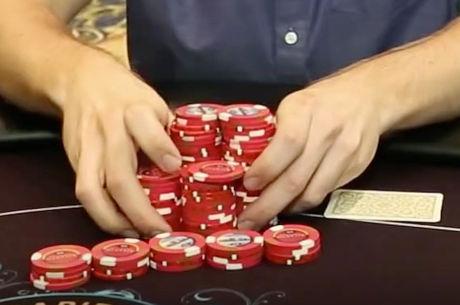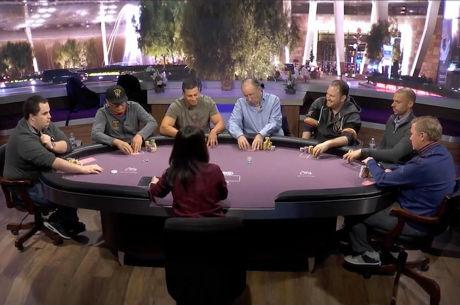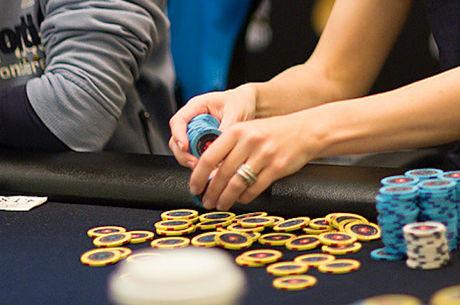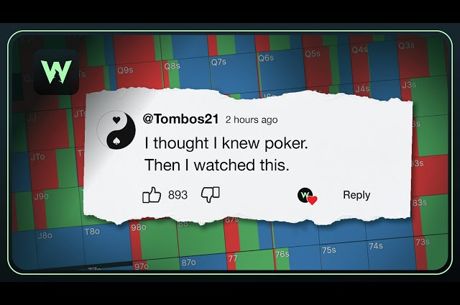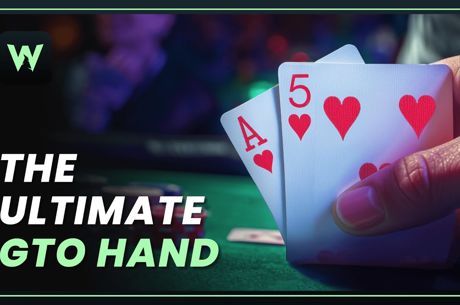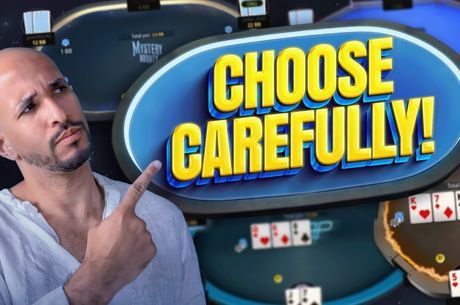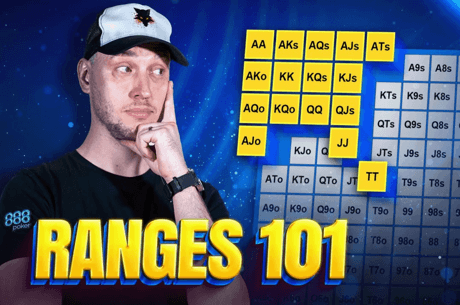Hand Review: Overbetting for Value in Level 1
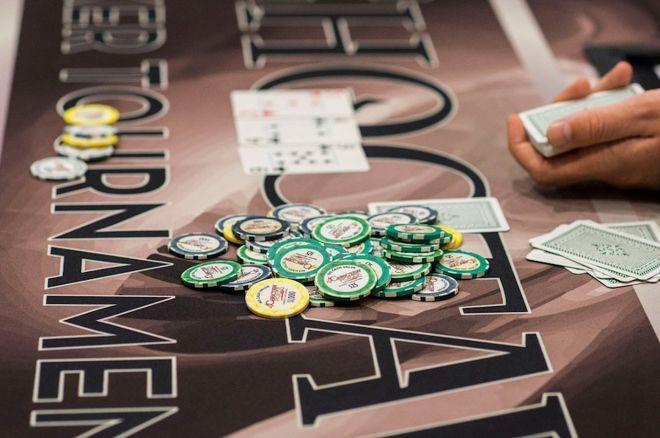
Covering live poker tournaments for a living affords me the opportunity to see countless thousands of hands played out, many of which offer interesting and potentially valuable insights into how players — both amateurs and professionals — play the game. In this ongoing series, I'll highlight hands I've seen at the tournaments I've covered and see if we can glean anything useful from them.
The Scene
After a fun hand last week that saw me vacillate between an all-in bluff and considering calling for value against what turned out to be an all-in bluff, we'll look at another, more successful hand I played during the World Series of Poker Circuit Choctaw series. This one came in a $1,125 buy-in ring event.
I had only recently taken my seat in the event during Level 1 (25/50) but had already doubled my 15,000 starting stack due to being dealt aces and having an opponent massively overvalue jacks. That sort of thing never happens in Choctaw.
In any case, I was especially deep-stacked with the player on my right, Aaron Frei, a traveling player from Colorado with over $500K in cashes. He had also experienced early success and had about 25,000 in his stack when the following hand took place.
The Action
I can't recall exactly how many players were in there, but I believe three had limped to my small blind, where I found 3♦2♦. I completed and the big blind checked.
The flop came 8♦4♦3♣ and action checked to Frei on the button who bet 200. I made it 700 and everyone in the middle folded back to Frei, who called. The turn was the Q♦ and we both checked. On the 8♥ river, I bet 2,150 and Frei went into the tank for a bit.
"Ah, I have trips but a bad kicker," Frei said with a sigh.
After a minute or so of thought, he tossed in calling chips and mucked to my flush.
Concept and Analysis
Overbetting is a tactic that's becoming more and more widely used, and I busted an overbet out in this fun hand from Level 1 in a tournament I'd eventually go on to bust just a couple of spots before the money. Later heartbreak aside, I thought it was an interesting one to look over.
When I flop bottom pair and a flush draw in a multi-way pot, I decide to check and see what develops on a board that's fairly dead and shouldn't help too many players who had limped. When Frei bets from the button, although it's a largish bet, it could still come from a wide range of hands. I tend not to give a ton of credence to bets that come from a player last to act in a multi-way pot.
I decided to check-raise fairly big, which looks pretty strong given the size of his bet and the number of players in the pot. I figured I could force out some hands with marginal equity behind me like gutshots or overcards, plus build the pot in case I improved and Frei had a real hand.
When I make my flush on the turn, I decide to check. It's certainly more standard to keep barreling in this spot, but I decided to check for a few reasons.
First, that turn card — the Q♦ — I'd check a good portion of the time with my strong but not nutted hands. Betting with something like two pair or ace-eight and then getting raised in this spot would be a bit of a disaster.
Second, I feel like I'm unlikely to get two more streets of value against one-pair hands.

Third, I'm okay letting a free diamond roll off and ruin my hand on the river because the pot is small, anyway. I felt the potential value of playing my hand deceptively outweighed the downside of possibly losing a relatively inconsequential pot.
The river is an interesting card because now a good chunk of my opponent's range has made trips. I chose to overbet the pot slightly. My reasoning was that I figured Frei was unlikely to fold trips and most other hands were probably folding, anyway. So why not get a little extra value the times I had trips beat?
When Frei immediately grabbed chips, I thought for a second I had value-owned myself and was about to get crushed by another flush. That's certainly going to happen now and then in these river bet spots where opponents expect you to be more polarized than you are. Luckily, the flush was good and I was able to get paid off by worse.
Overbetting introduces some fun dynamics in pots. It can be a great strategy for value early in tournaments, when pots tend to be smaller relative to stack sizes and players seem less inclined to fold.
If you suspect your opponent has a strong hand but one that's worse than yours, forget about "standard" sizing and just make a big bet. Players hate folding in general, so get paid off more the times you have it.
Photo: "Chips_Cards_Branding" (adapted), World Poker Tour, CC BY-ND 2.0.

